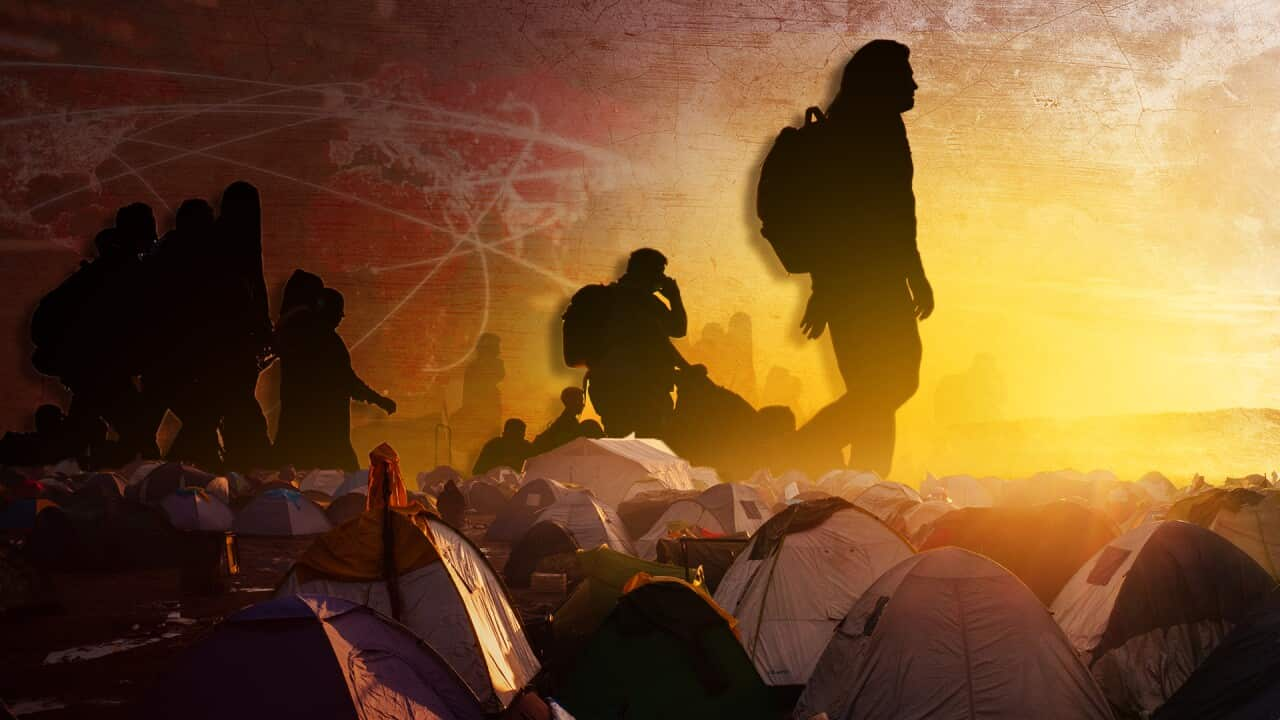One in 78 people across the world is forcibly displaced, a figure "few would have expected a decade ago", according to the United Nations.
With twice as many violent conflicts being waged than 10 years ago, including Russia's invasion of Ukraine earlier this year, the United Nations High Commissioner for Refugees (UNHCR) said nations must work together to promote peace.
The number of people displaced by war, violence, persecution, and human rights abuses stood at just over 89 million at the end of 2021.

The Global Trends report lists 89.3 million people as being forcibly displaced, but this number has since risen to over 100 million due to other conflicts worldwide.
UNHCR representative for Australia, New Zealand and the Pacific, Adrian Edwards, said major violent conflicts were not subsiding and added to the already “immense strain” on the humanitarian response.
“Those conflicts are, simply, they're starting and they're not going away. So, if you are becoming a refugee, if you are becoming internally displaced in 2022, chances are unfortunately you're going to be in that situation for a long time to come,” Mr Edwards said.

The Global Trends report, with data up to the end of 2021, shows where the highest numbers of forcibly displaced people come from.
“It's not often you that see displacement accelerate that quickly. This means that in Europe, you have the biggest refugee and displacement crisis since, really, World War Two,” Mr Edwards said.
In Afghanistan, nearly one million people were displaced within the country or to neighbouring countries by the end of 2021, after the Taliban regained control after its takeover of the capital of Kabul.
More than two million more people were displaced within Ethiopia, following the conflict in the Tigray region.
In Myanmar, the military takeover in February last year ignited widespread violence and forced more than 400,000 to flee.

Turkey has taken in the most forcibly displaced people, the report said.
"But the reality is that statistics like this, these very large numbers mean we have to redouble our efforts. We have to find new, innovative, creative ways to help," Mr Edwards told SBS News.
The report found many refugees hoped to return to their homes if there was proper access to housing and livelihood, which is currently impossible due to existing conflicts, persecution and human rights violations.
Some 72 per cent were hosted by nations neighbouring their home countries - many of them low and middle-income nations.
Turkey hosted nearly 3.8 million refugees — the largest population worldwide — while Uganda and Pakistan hosted 1.5 million each, and Germany 1.3 million.
Over two-thirds of the world's refugees came from five countries: Syria (6.8 million), Venezuela (4.6 million), Afghanistan (2.7 million), South Sudan (2.4 million) and Myanmar (1.2 million).
'More needs to be done globally'
World Vision Australia Humanitarian Policy Advisor Nadine Haddad said more than 21 million children faced starvation under the compounding effects of climate change and violent conflict.
She said: "We need to do more now and support children and their families where they are by providing holistic and comprehensive assistance.
"That means food, that means water, that means ensuring children are protected and have access to protective services, ensuring children can still access education and still have hope for the future.
"But more needs to be done globally.
"A huge number of people are forced to leave their homes, but the solutions that are available to them to be resettled in countries that welcome them is quite minimal."
The UNHCR said the number of refugees and internally displaced people returning to their homeland increased in 2021, going back to pre-COVID-19 levels.
Voluntary repatriation surged 71 per cent, with 429,300 refugees returning to their countries of origin.
Additional reporting by Omar Dehen.









